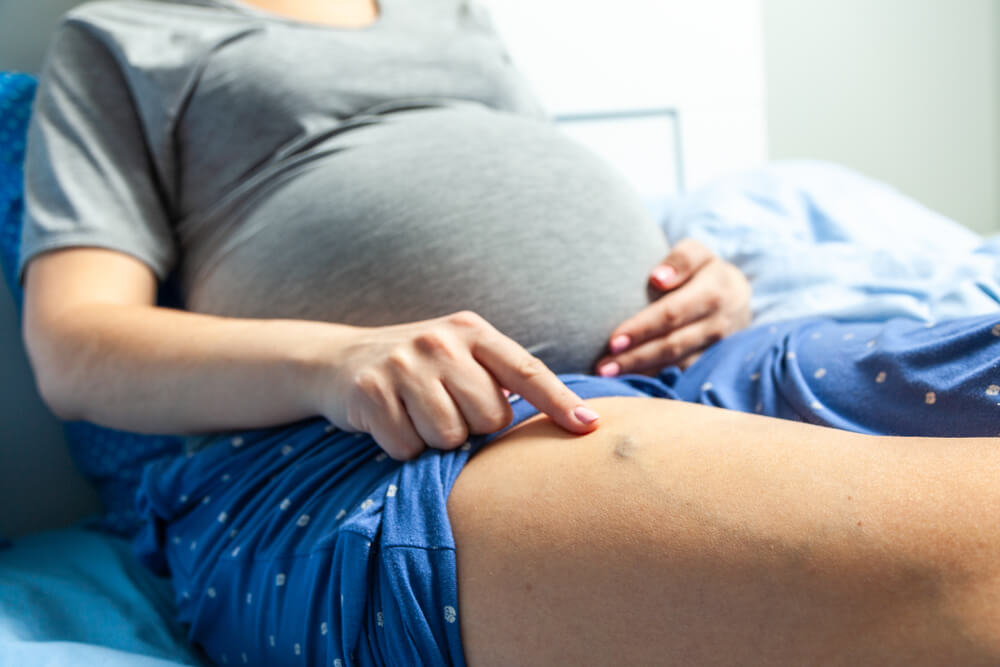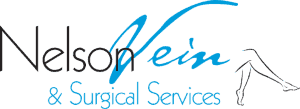Pregnancy-Related Varicose Veins: Prevention and Management Tips

It’s no secret that pregnancy brings a mix of excitement and challenges. Your body is growing and changing in incredible ways, but sometimes, those changes come with unexpected side effects—like developing varicose veins.
You’re not alone if you’ve noticed swollen, twisting veins appearing on your legs or other areas during pregnancy. In fact, about 40% of pregnant women develop varicose veins. These veins are common, and while they’re usually not dangerous, they can cause discomfort, swelling, and even self-consciousness.
Thankfully, there are effective ways to prevent, manage, and treat pregnancy varicose veins. In this guide, we’ll explore what causes them, how you can minimize their impact, and what treatments are available to help you feel more comfortable—whether you’re a first-time mom or adding to your family.
Why Pregnancy Increases Varicose Vein Risk
Pregnancy is a time of incredible physical changes, and many of those changes can place extra strain on your veins. Here are three factors that can increase the chance that varicose veins develop during pregnancy.
Increased Blood Volume
As your body works to support the growing life inside you, your blood volume increases significantly—sometimes by up to 50%! While this extra blood flow is essential for your baby’s development, it also means your veins have to work much harder to pump blood back to your heart, especially from your legs.
Hormonal Changes
Hormonal changes during pregnancy also play a role. Higher progesterone levels relax your blood vessel walls, which can make them more prone to stretching and weakening. Combined with the additional pressure from your growing uterus on your pelvic veins, these relaxed veins create ideal conditions for developing varicose veins, particularly in your legs.
Slowed Blood Circulation
In addition to these factors, pregnancy naturally slows circulation later in the pregnancy to prioritize blood flow to your baby. This can lead to pooling in the veins and cause them to become swollen and twisted, or cause you to develop a blood clot.
These changes are a natural part of pregnancy, so there’s no need to be afraid. However, understanding why they happen can help you take proactive steps to protect your vein health during this transformative time.
4 Ways to Prevent Varicose Veins During Pregnancy
With the increased blood volume and pressure on your veins from a growing baby, it’s easy to see why varicose veins can become a concern. The good news? Taking a few proactive, doctor-recommended steps can make a big difference in keeping your veins healthy and minimizing discomfort so you can remain comfortable and confident throughout your pregnancy.
1. Follow These Early Pregnancy Vein Care Tips
Taking care of your veins from the very start of your pregnancy can make a significant difference in preventing varicose veins during pregnancy. During the early months, your body begins adjusting to the increased blood flow needed to support your baby. This places more pressure on your veins.
Addressing lifestyle factors that affect your vein health early can reduce strain on your leg veins and improve circulation, setting the stage for a more comfortable pregnancy. Here are some tips to do so:
- Elevate your legs when resting: Elevating your legs above your heart improves circulation and reduces the pressure on your veins. It’s a simple way to combat swelling and heaviness after a long day.
- Avoid sitting or standing for too long: Long periods of inactivity can cause blood to pool in your legs, so make it a habit to switch positions frequently or take short walks to keep blood flowing.
- Wear “prescription-grade” compression stockings: These specially designed stockings help support your veins and improve blood flow. Consider wearing them if you’re on your feet a lot or have a job that requires long hours of sitting.
- Stay hydrated: Aim to drink plenty of water throughout the day. Proper hydration keeps your blood thinner, making it easier to flow through your veins.
2. Do These Safe Exercises for Vein Health While Pregnant
Exercise is one of the most effective ways to promote healthy circulation during pregnancy, which can help prevent varicose veins. When you move, your leg muscles act like pumps and push blood back up toward your heart, relieving pressure on your veins. Staying active also supports your overall physical and mental well-being and prevents weight gain, so it’s well worth doing regularly.
Here are some pregnancy-safe exercises to keep your veins in great shape:
- Walking daily: Take a brisk 20- to 30-minute walk to boost circulation and strengthen your leg muscles. It’s low-impact, making it safe and effective throughout all stages of your pregnancy.
- Prenatal yoga: Yoga improves flexibility and encourages better blood flow. Look for prenatal classes that include poses like “legs up the wall” to reduce swelling and improve circulation.
- Swimming or water aerobics: Water-based exercises relieve the pressure on your legs, ease the strain on your veins, promote full-body circulation, and support your growing belly.
- Ankle circles and calf raises: You can do these simple exercises at home or while sitting at work to keep blood flowing in your lower legs, reducing the chance of pooling and swelling.
- Pelvic tilts: This gentle exercise strengthens your core and helps improve blood flow through your lower body. It also supports a healthy posture, which can relieve pressure on your veins.

3. Keep the Following Dietary Considerations for Pregnant Women in Mind
What you eat during pregnancy doesn’t just nourish your growing baby—it also plays a vital role in maintaining healthy veins. A balanced diet can help reduce swelling, improve blood flow, and keep your veins strong and elastic. Choosing the right foods and nutrients can lower your risk of developing pregnancy varicose veins while also supporting your overall health during the journey.
Some dietary tips to keep your veins in top shape include:
- Increase your fiber intake: Add whole grains, beans, and fresh fruits and vegetables to your meals to support healthy digestion. A high-fiber diet helps prevent constipation, which can increase pressure on your veins.
- Reduce sodium intake: High sodium intake can lead to fluid retention and swelling, which puts extra strain on your veins. Opt for fresh foods and limit processed options to manage your salt levels.
- Load up on Vitamin C: Vitamin C is crucial for collagen production, which strengthens vein walls. Include citrus fruits, bell peppers, and leafy greens to keep your veins flexible and resilient.
- Drink plenty of water: Staying hydrated keeps your blood flow smooth and reduces the risk of clotting or vein congestion. Aim for at least 8-10 glasses of water per day.
- Choose iron-rich foods: Iron supports healthy blood flow and oxygen delivery, which decreases the risk of anemia and vein complications. Include lean red meats, legumes, and spinach in your diet for a boost.
4. Don’t Forget the Role of Compression Stockings During Pregnancy
Prescription-grade compression stockings are a simple yet highly effective tool for preventing and managing varicose veins during pregnancy. These specially designed stockings apply gentle, graduated pressure to your legs, with the most compression at the ankles. This helps improve blood flow back toward your heart, which reduces the risk of blood pooling in your veins and eases discomfort caused by swelling or heaviness.
To get the most out of your compression stockings, wear them during the day, especially if you’re on your feet for long periods or sitting for extended stretches. Put them on first thing in the morning before swelling begins, and choose a well-fitted pair designed for pregnancy.
Compression stockings come in various sizes and strengths, so consult your doctor to find the right option for your needs. They’re a small investment in your comfort and vein health that can make a big difference.
Postpartum Vein Care and Recovery
After pregnancy, your body begins the remarkable process of recovery and healing. While some pregnancy-related varicose veins may fade on their own, others might linger or even worsen if not managed properly.
Postpartum vein care is essential for your comfort and long-term vein health. Taking proactive steps during this period can help your veins recover and reduce the chances of future complications.
Here are some practical tips to support postpartum vein recovery:
- Stay active: Gentle movement like walking promotes circulation and helps your vein recovery. Start with light activities and gradually increase your activity level as your body allows.
- Continue wearing compression stockings: Compression stockings are effective even after delivery because they support blood flow and reduce swelling as your veins adjust to postpartum changes.
- Keep elevating your legs: Whenever possible, take short breaks to rest with your legs elevated above your heart to reduce swelling and encourage healthy blood flow.
- Hydrate and maintain a balanced diet: Drinking plenty of water and eating foods rich in fiber, vitamins, and minerals aids in overall recovery and supports your veins. Focus on whole grains, a good ratio of lean and fatty proteins, and fresh produce.
- Monitor your veins: Keep an eye on varicose veins that developed during pregnancy. If they persist or cause discomfort, immediately consult a vein specialist to discuss treatment options and see if they will need to remove varicose veins.
By following these steps, you can give your veins the care they need during this critical postpartum phase. Taking the time to nurture your vein health now will help ensure a smoother recovery and reduce the likelihood of future vein issues.
Take the Next Step Toward Healthy Veins During Pregnancy
Pregnancy is a beautiful and wondrous journey, but it can also present challenges that deserve care and attention, like varicose veins. The good news is that with the right strategies and support, you can protect your vein health during and after pregnancy. Taking these proactive steps now can make a big difference in a healthy pregnancy, ensuring your comfort and long-term well-being.
At Nelson Vein & Surgical Services, we’re here to support you every step of the way. Our expert team’s compassionate, patient-centered approach ensures that you and your family are actively involved in every aspect of your care. With Dr. Nelson’s expertise in minimally invasive treatments and her dedication to providing personalized solutions, you can trust that you’re in the best hands.
If pregnancy-related varicose veins are causing you discomfort or concern, we encourage you to get in contact with us. Together, we’ll create a treatment plan tailored to your unique needs so you can focus on enjoying this special time in your life. Schedule your consultation today to take the first step toward happy, healthy veins!
